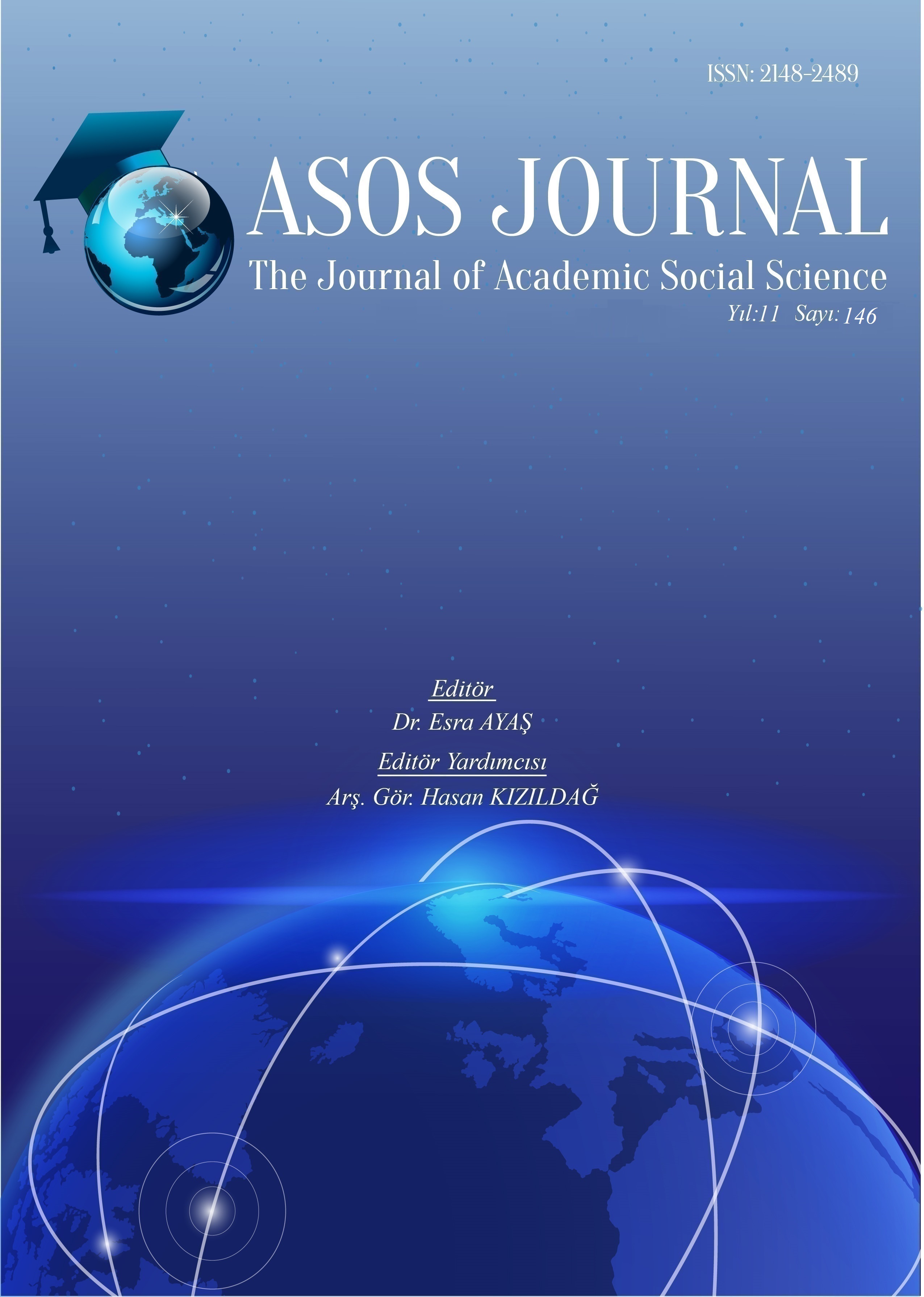ARŞİV BELGELERİNE GÖRE BİRİNCİ DÜNYA SAVAŞI IRAK CEPHESİNDE ARAP AŞİRETLERİ VE İNGİLİZLERLE MÜCADELE
Author :
Abstract
Birinci Dünya Savaşı sırasında Osmanlı Devleti, Irak cephesinin açılmayacağını öngörmüştü. Ancak Osmanlı devlet adamlarının bu yanılgısı Irak’ta Bağdat ve Musul gibi önemli yerlerin kaybedilmesiyle sonuçlanmıştır. Osmanlı Devleti, Irak cephesinde halifenin ilan ettiği Cihat çağrısına yerel toplulukların destekleyeceği varsamından yola çıkarak bu bölgenin gönüllülerin yardımıyla savunulacağını yeterli görmüştür. Fakat Cihat çağrısına bölgede destek veren Şeyh Hatim-el Uhut ve Geraf aşiretleri gibi topluluklar İngilizlere karşı koyarken, Gelhur, Gurâni, Kalhani aşiretlerinin İngilizlerle işbirliği yaptığı görülmüştür. Çalışmada “Askeri Tarih Belgeleri Dergisi”nde yayımlanan arşiv belgelerine dayanarak makale kaleme alındı. Aynı zamanda bu konuyla alakalı pek çok kitap, bilimsel tez ve makalelerden literatür incelemeleri yapıldı. Belgeler incelendiğinde Irak Cephesinin kaybedilme nedeninin Osmanlı devlet adamlarının bölgeye yeterince ilgi göstermediğinden kaynaklı olduğu sonucuna varıldı. Özellikle Kût’ül Amare zaferinden sonra 6. Ordunun bir kısmının Ruslarla savaşması için İran cephesine aktarılması karşısında Osmanlı askerleri, toparlanan İngilizlere karşı etkili olamamıştır. Yerel gönüllü birliklere güvenen bir strateji izleyen Osmanlı Devleti, İngilizlerin devlet aleyhine yaptığı propaganda karşısında da yetersiz kalmıştır. Çalışmanın amacı Türk tarih literatüründe “Arapların tamamı Türklere ihanet etti” söylevinin doğru olup olmadığını ortaya koyabilmektir. Çalışmanın hedefi politik bir amaçtan ziyade bilimsellik açısından sorunsalı doğru çözümleyebilmektir.
Keywords
Abstract
During the First World War, the Ottoman Empire had predicted that the Iraqi front would not be opened. However, this mistake of the Ottoman statesmen resulted in the loss of important places in Iraq such as Baghdad and Mosul. Based on the assumption that the local communities would support the call for Jihad announced by the caliph on the Iraqi front, the Ottoman Empire deemed it sufficient to defend this region with the help of volunteers. However, while communities such as Sheikh Hatim-el Uhut and Geraf tribes who supported the call for Jihad in the region resisted the British, it was observed that Gelhur, Gurâni and Kalhani tribes collaborated with the British. In my study, I wrote my article based on the archival documents published in the "Journal of Military History Documents". At the same time, I made literature reviews from many books, scientific theses and articles on this subject. When the documents were analyzed, it was concluded that the reason for the loss of the Iraq Front was that the Ottoman statesmen did not pay enough attention to the region. Especially after the victory of Kût'ul Amara, some of the 6th Army was transferred to the Iranian front to fight the Russians, and the Ottoman soldiers could not be effective against the recovering British. The Ottoman Empire, which followed a strategy that relied on local volunteer troops, was also inadequate in the face of the British propaganda against the state. The aim of the study is to reveal whether or not the statement in the Turkish historical literature that "all Arabs betrayed the Turks" is true. The aim of the study is to analyze the problematic correctly from a scientific point of view rather than a political aim.





